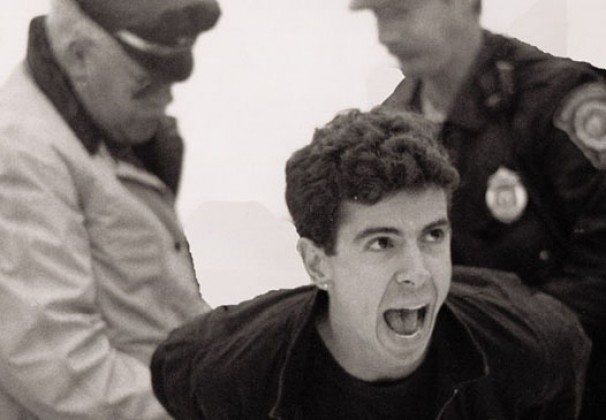
The Graduate School of Arts and Science screened the documentary “How to Survive a Plague,” at Vanderbilt Hall. The film is about the role the AIDS Coalition to Unleash Power, an advocacy group, and the Treatment Action Group, an HIV/AIDS activist organization, played in the early years of the AIDS epidemic.
After the documentary, a panel discussed the film and contemporary problems dealing with AIDS. Panelists for the Oct. 8 event included Jim Eigo, who works on HIV prevention issues with ACT UP New York; Melanie Dulfo, Women and Youth Program Manager at the Asian & Pacific Islander Coalition on HIV/AIDS community health center; NYU Professor Perry Halkitis; and Pato Hebert, a visiting associate arts professor at the Tisch School of Arts.
“Many people suffer from HIV, I think the government and health care industry could do more for them,” Sara Xiong, a first-year GSAS student who attended the event, said.
Halkitis, who is also an associate dean at the NYU Global Institute of Public Health, talked about surviving the AIDS epidemic.
“On Feb. 24 this year I turned 50 years old,” Halkitis said. “This was a shock to me … because I had never expected to turn 50. For that matter, I had never expected to turn 40. For that matter, I had never expected to turn 30. It’s because I’ve been managing to live with HIV since the 1980s. And I’m here to tell you that there is a subset of us who have survived this epidemic.”
Eigo, who was also featured in the documentary, discussed the reasons behind the success of ACT UP and the organization’s diversity.
“The first challenge of AIDS treatment activists only succeeded because we were embedded within a large, vibrant, various, nonviolent, direct-action organization that was targeting AIDS on several fronts,” Eigo said.
He also said individuals involved in the ACT UP range in age, gender and sexuality, presenting a wide variety of backgrounds.
“ACT UP grouped together professionals, artists, media people, students, office temps and unemployed,” Eigo said. “The majority were gay guys, many had AIDS, some carried the HIV virus, but some were HIV-negative and many more were just unsure.”
Eigo noted that the women who contributed their efforts to the organization were invaluable.
“Some of them, but not all of them, were gay,” Eigo said. “And the work they did within the organization and in a series of campaigns that focused on women and AIDS, they would change the course of the epidemic.”
Students in the audience said the documentary increased their awareness of the AIDS epidemic.
“[It] taught us a lot about AIDS, like things that I didn’t know of, the process of how we have come to where we are right now,” Tisch freshman Jingsong Ling said.
A version of this article appeared in the Wednesday, Oct. 9 print edition. Afeefa Tariq is a contributing writer. Email her at [email protected].
























































































































































